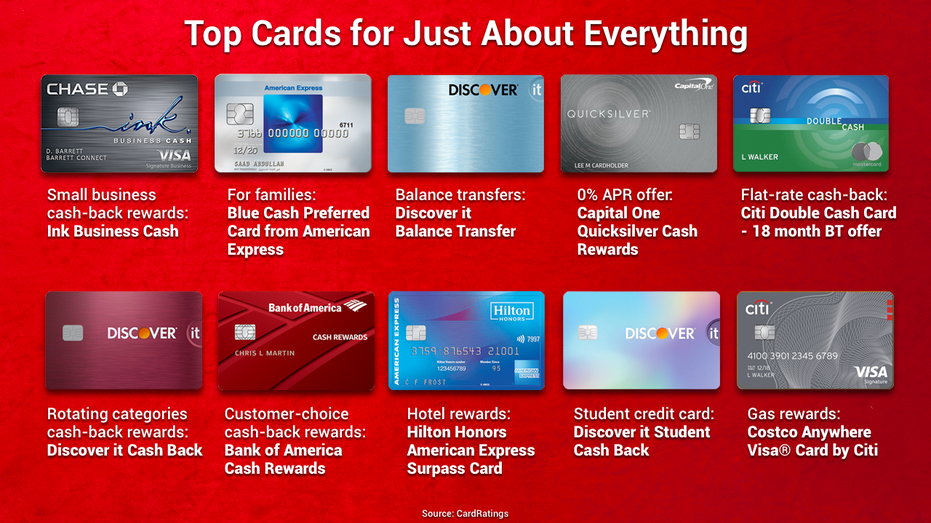Enterprise Finance A Car
Financing Your Next Vehicle: Enterprise Car Finance Options
Looking to finance your next vehicle? Enterprise offers a variety of car finance options to help you get behind the wheel of your dream car. Whether you’re looking to buy a new or used vehicle, Enterprise has flexible financing solutions to fit your needs. From competitive interest rates to quick approval processes, Enterprise makes it easy to finance your next car purchase. Explore their financing options today and drive away in the car of your dreams!
Understanding the Costs of Purchasing a Car
When it comes to buying a car, there is more to consider than just the sticker price on the window. Understanding the true costs associated with purchasing a vehicle will help you make a more informed decision and avoid any financial surprises down the road.
One of the most significant costs to factor in when buying a car is the initial purchase price. This is the amount you will pay to drive the car off the lot and take ownership of it. However, this is just the beginning of the expenses associated with owning a vehicle. Once you have purchased the car, you will need to consider additional costs, such as taxes, registration fees, and any dealership fees that may apply. These costs can add up quickly, so it is essential to budget for them before making a purchase.
Another cost to consider is the cost of insurance. It is a legal requirement to have car insurance in most states, and the cost of insurance can vary depending on factors such as your driving record, the type of car you drive, and where you live. It is crucial to obtain insurance quotes for the specific vehicle you are considering purchasing to get an accurate idea of this ongoing expense.
Don’t forget about maintenance costs when factoring in the total cost of owning a car. Regular maintenance, such as oil changes, tire rotations, and brake inspections, is essential to keep your vehicle running smoothly and safely. These costs can add up over time, so it is essential to budget for them accordingly. In addition to regular maintenance, unexpected repairs can also arise, so having an emergency fund set aside for these expenses is a wise idea.
Depreciation is another cost to consider when purchasing a car. As soon as you drive a new car off the lot, it begins to depreciate in value. This means that the car will be worth less than what you paid for it in the future when you go to sell or trade it in. It is essential to understand the depreciation rate of the specific vehicle you are considering purchasing and factor this into your decision-making process.
Lastly, don’t forget about fuel costs. The type of vehicle you choose will directly impact how much you spend on gas each month. A fuel-efficient vehicle will save you money at the pump, while a gas-guzzler will cost more to operate. Consider your daily commute and driving habits when deciding on a vehicle to ensure that you can afford the ongoing fuel expenses.
In conclusion, understanding the true costs associated with purchasing a car is essential for making a well-informed decision. By considering all the expenses involved in owning a vehicle, you can budget appropriately and avoid any financial surprises in the future. Remember to factor in the initial purchase price, taxes, insurance, maintenance, depreciation, and fuel costs when determining the total cost of owning a car.
Financing Options for Buying a Vehicle
When it comes to financing a vehicle purchase, there are several options available to consumers. One popular option is to take out an auto loan through a bank or credit union. With an auto loan, you borrow a fixed amount of money from a lender and pay it back with interest over a set period of time. The interest rate on an auto loan will vary depending on your credit score, the length of the loan, and the lender’s policies.
Another common financing option is to use dealer financing. When you finance a vehicle through a car dealership, the dealer acts as an intermediary between you and a lender. The dealer will often offer financing promotions and incentives to entice buyers to finance through them. While dealer financing can be convenient, it is important to carefully review the terms and conditions of the loan to ensure you are getting the best deal.
For those looking for more flexibility in their financing options, leasing a vehicle may be a suitable choice. When you lease a vehicle, you essentially rent it for a set period of time, typically two to three years. Leasing allows you to drive a newer vehicle with lower monthly payments compared to financing a purchase. However, there are limitations on mileage and wear and tear that you must adhere to, and you do not own the vehicle at the end of the lease unless you choose to buy it outright.
If you have a strong credit history and are looking for the lowest interest rates possible, you may consider getting pre-approved for a loan from a bank or credit union before heading to the dealership. By securing financing beforehand, you can negotiate with the dealer as a “cash buyer,” potentially securing a better deal on the vehicle price or loan terms.
Ultimately, the best financing option for buying a vehicle will depend on your individual financial situation and preferences. It is important to carefully consider the terms and conditions of each financing option before making a decision. Whether you choose to take out an auto loan, finance through a dealer, lease a vehicle, or secure pre-approved financing, be sure to compare offers from multiple lenders to ensure you are getting the best deal possible.
Budgeting for Car Expenses in Your Enterprise
When it comes to running a successful enterprise, managing expenses is key. One important aspect of this is budgeting for car expenses. Whether your enterprise uses vehicles for deliveries, client visits, or employee transportation, it’s essential to plan ahead for the costs associated with owning and operating these vehicles.
1. Calculate Total Costs: The first step in budgeting for car expenses is to calculate the total costs associated with owning and operating your fleet of vehicles. This includes not only the purchase price of the vehicles but also ongoing expenses such as fuel, insurance, maintenance, and repairs. By taking stock of all these expenses, you can get a clearer picture of how much you need to allocate in your budget for car-related costs.
2. Create a Separate Budget: Once you have a good idea of the total costs involved, it’s important to create a separate budget specifically for car expenses. This will help you to keep track of these costs more effectively and ensure that you have enough funds set aside to cover them. Make sure to review and update this budget regularly to account for any unforeseen expenses or changes in your fleet.
3. Consider Alternative Financing Options: In addition to budgeting for car expenses, it’s also worth considering alternative financing options for purchasing or leasing vehicles for your enterprise. For example, instead of buying vehicles outright with cash, you could opt for financing or leasing options that allow you to spread out the cost over time. This can help to alleviate some of the financial burden upfront and make it easier to manage your cash flow.
Furthermore, some financing options may also offer tax benefits or incentives that can further reduce the overall cost of owning and operating vehicles for your enterprise. It’s important to weigh the pros and cons of each financing option and choose the one that best fits your budget and long-term goals.
Overall, budgeting for car expenses in your enterprise is a crucial part of managing your overall financial health. By calculating total costs, creating a separate budget, and considering alternative financing options, you can better plan for and manage the expenses associated with owning and operating vehicles for your business. This will not only help you stay on track financially but also ensure that your enterprise continues to run smoothly and efficiently.
Tax Benefits and Deductions for Business Vehicles
When it comes to financing a car for your business, there are several tax benefits and deductions that you can take advantage of. One of the main benefits is the ability to deduct the cost of financing the vehicle from your business taxes. This can help reduce your overall tax liability and provide a significant savings for your business.
In addition to deducting the cost of financing the vehicle, you may also be able to deduct other expenses related to the car, such as maintenance and insurance. These deductions can add up quickly and provide even more savings for your business. By taking advantage of these deductions, you can ultimately save money and improve your bottom line.
Another tax benefit of financing a car for your business is the ability to depreciate the vehicle over time. This means that you can deduct a portion of the cost of the car each year as it loses value. Depreciation can provide a significant tax benefit for businesses that use vehicles as part of their operations.
One important thing to keep in mind when financing a car for your business is to keep detailed records of all expenses related to the vehicle. This includes not only the cost of financing, maintenance, and insurance, but also any mileage and other expenses related to the vehicle’s use for business purposes. By keeping thorough records, you can ensure that you are maximizing your tax deductions and taking full advantage of the benefits of financing a car for your business.
Asset Management Strategies for Your Company Car
When it comes to managing your company’s fleet of vehicles, there are several asset management strategies that can help maximize the value of your company car. From tracking maintenance schedules to optimizing fuel efficiency, implementing these strategies can ultimately save your company money and increase the longevity of your company car. Here are five asset management strategies for your company car:
1. Regular Maintenance Checks: One of the most important asset management strategies for your company car is to schedule regular maintenance checks. By staying on top of routine maintenance, you can prevent costly repairs down the road and ensure that your company car is running efficiently. This can include oil changes, tire rotations, and brake inspections, among other services. Keeping detailed records of these maintenance checks can also help with resale value in the future.
2. Monitoring Fuel Usage: Another key asset management strategy for your company car is to monitor fuel usage. By tracking the fuel efficiency of your company car, you can identify any potential issues that may be affecting its performance. This can include inefficient driving habits, a clogged air filter, or even a malfunctioning sensor. By addressing these issues promptly, you can improve fuel efficiency and reduce overall costs.
3. Utilizing Technology: In today’s digital age, there are countless technologies available to help manage your company car. From GPS tracking systems to mileage tracking apps, utilizing technology can make asset management much easier. These tools can help you monitor the location of your company car, track its mileage, and even schedule maintenance reminders. By leveraging technology, you can streamline the asset management process and make informed decisions about your company car.
4. Implementing Driver Training Programs: Your employees play a crucial role in the overall asset management of your company car. Implementing driver training programs can help ensure that your employees are driving your company car responsibly and efficiently. By educating them on safe driving practices and fuel-efficient driving techniques, you can prolong the life of your company car and reduce the likelihood of costly accidents.
5. Lifecycle Management: One often overlooked asset management strategy for your company car is implementing a lifecycle management plan. This involves strategically determining the lifespan of your company car and planning for its eventual replacement. By taking into account factors such as depreciation, maintenance costs, and mileage, you can create a timeline for when it makes sense to replace your company car. This can help you avoid unexpected expenses and ensure that your company car remains a valuable asset to your business.
Originally posted 2025-10-03 02:13:12.






